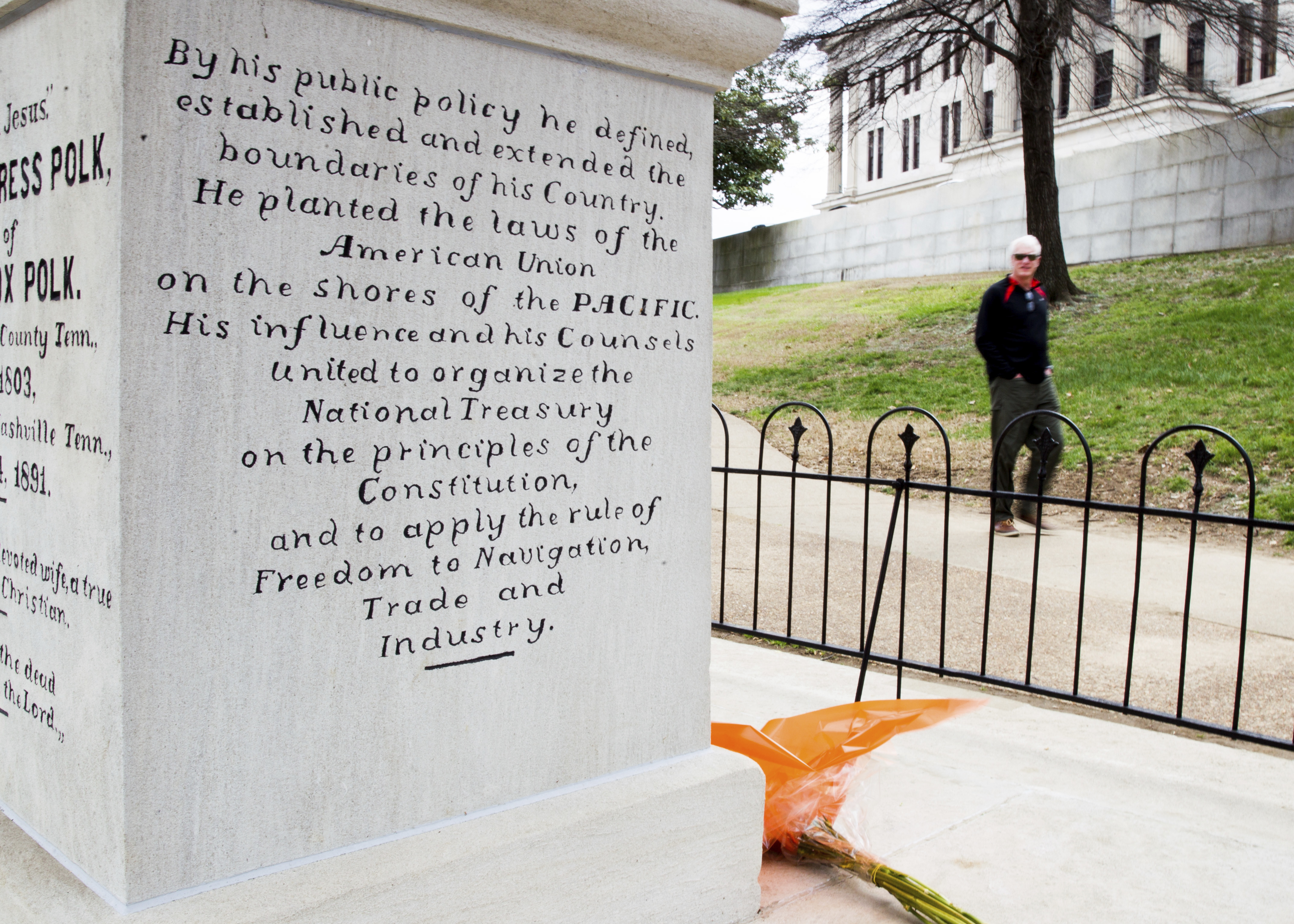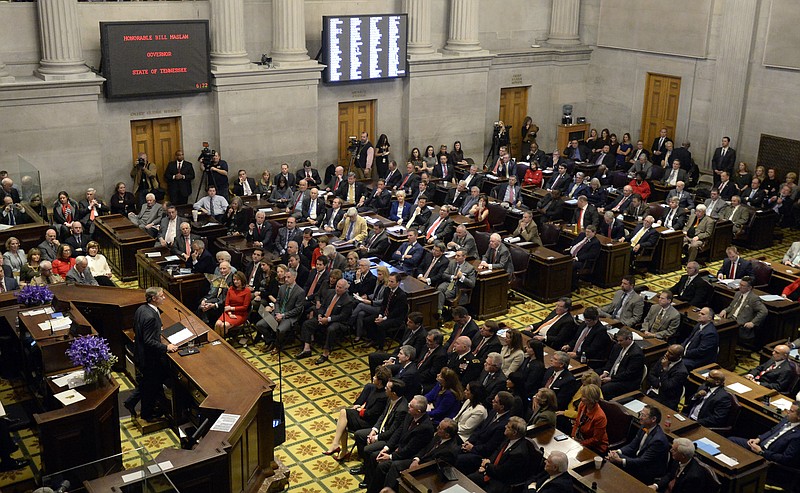NASHVILLE - The Tennessee House said no Monday to a controversial resolution that would have allowed the body of President James K. Polk to be exhumed from the state Capitol grounds and moved to yet a fourth place in Columbia, Tenn.
Meanwhile, Republican senators sent a bill to ban marriages of anyone under the age of 18 in Tennessee back to a Senate panel for review after adding a provision allowing marriages of teens age 17 over the objections of the Democratic sponsor.
 The burial place of President James K. Polk and his wife, Sarah Polk, is seen on the grounds of the state Capitol in Nashville, Tenn., on Friday, March 24, 2017. A resolution being considered in the state Legislature calls for exhuming their bodies and moving them to the James K. Polk Home and Museum in Columbia, Tenn. (AP Photo/Erik Schelzig)
The burial place of President James K. Polk and his wife, Sarah Polk, is seen on the grounds of the state Capitol in Nashville, Tenn., on Friday, March 24, 2017. A resolution being considered in the state Legislature calls for exhuming their bodies and moving them to the James K. Polk Home and Museum in Columbia, Tenn. (AP Photo/Erik Schelzig)The Polk resolution received 49 of the 50 required yes votes in the 99-member chamber. Thirty-seven representatives voted no.
Members fiercely debated the issue, which for years has had even descendants of the nation's 11th president, a former Tennessee governor who served a single term as president, divided over moving the body 50 miles south to the grounds of the James K. Polk Home and Museum in Columbia.
Rep. Michael Curcio, R-Dickson, and Rep. Sheila Butt, R-Columbia, who represent Maury County, argued in favor of Senate Joint Resolution 141, which supported and approved of relocating Polk's remains and that of his wife, Sarah, to the museum grounds.
Curcio said he was initially skeptical of the effort, but after reading Polk's will and other documents came around to the idea.
Polk served as president from 1845-1849 at a time when the U.S. expanded its territory by more than a third to reach across the continent. He died shortly after leaving office. He had wanted to be buried at Polk Place in Nashville. He was originally buried in a city cemetery, then later laid to rest in Polk Place.
Family members eventually sold the property, located a block from the Capitol, and the late president and his wife were relocated to the Capitol grounds.
Curcio and supporters of the measure, which would have required the State Historical Commission to consider the request, followed by a court weighing in.
The Senate previously approved the measure with a 20-6 vote. The head of the Historical Commission has said he opposes moving the bodies of the president and his wife.
While the bill failed, it could be brought back if proponents find enough votes to pass it.
Regarding the child-marriage ban bill, Senate Democratic Caucus Chairman Jeff Yarbro of Nashville sought to pass the original under-18 ban although the House Democratic sponsor of the bill had agreed to provisions allowing those age 17 to marry if certain conditions were met and a judge approved it.
"I learned the amendment would not make the bill stronger. This is the right way to go about this," Yarbro said.
Senate Republicans had appeared ready to go along with the House compromise - that critics say children in their early teens have gotten married, usually girls, to adult males years, even decades older.
Republicans approved an amendment allowing marriages for 17-year-olds, then at the motion of Senate Judiciary Committee Chairman Brian Kelsey, R-Germantown, moved the legislation back to his committee for further review.
Contact staff writer Andy Sher at asher@timesfreepress.com or 615-255-0550. Follow on Twitter @AndySher1.
